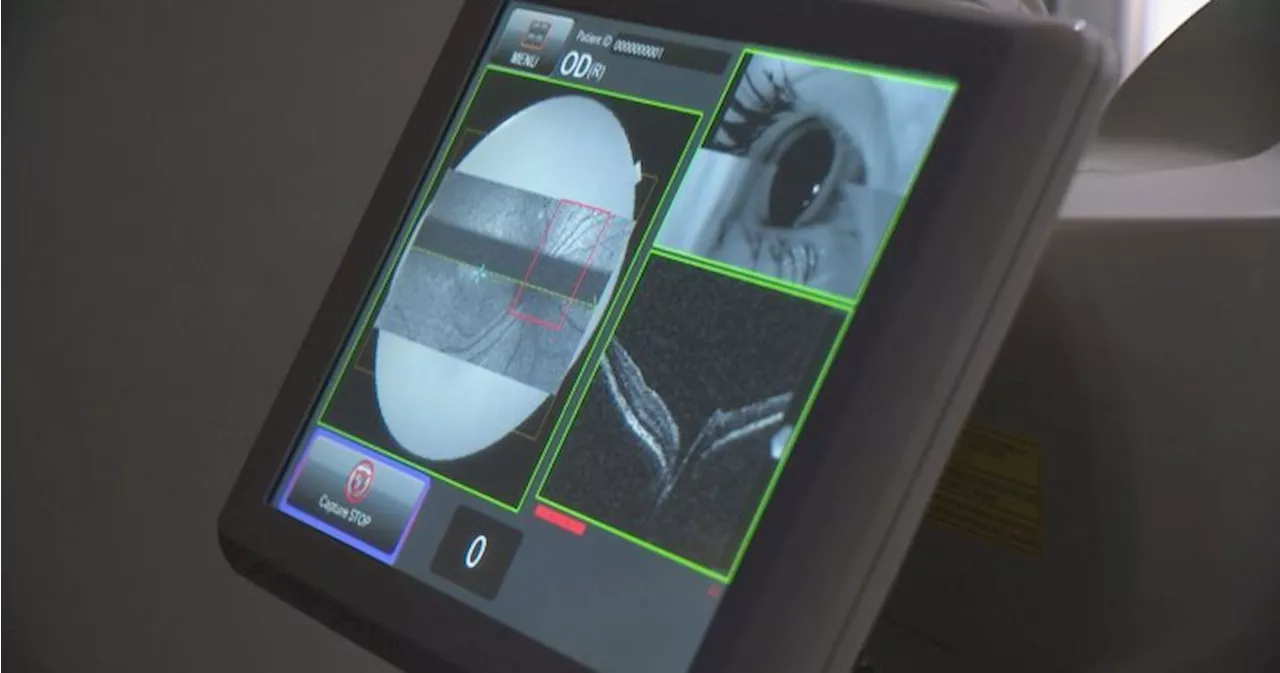Researchers are trying to determine if lifestyle interventions show cognitive improvement in people with mild cognitive impairment or early dementia due to Alzheimer’s disease.
Researchers are trying to see if lifestyle interventions show cognitive improvement in people with mild cognitive impairment or early dementia due to Alzheimer’s disease. Looking back, Tammy Maida, 67, said things started to change in her late 50s. At first, she would lose track of her belongings: her keys multiple times a day, a ring, eyeglasses, her purse.
The thinking skills of a majority of people in the intervention group stayed the same, a boon since most in the control group declined. Ten people saw their cognition actually improve, while a blood test found levels of amyloid, a hallmark of Alzheimer’s disease, were retreating, said lead study author Dr. Dean Ornish, a clinical professor of medicine at the University of California, San Francisco.
“If you picture a brain full of damage as a sink full of water, when you just turn off the tap, it takes a long time for that sink to slowly drain, right?” said Tanzi, director of the McCance Centre for Brain Health at Massachusetts General Hospital in Boston. “I wish we could do a program like this for everyone, not just people with mild cognitive impairment or early stage Alzheimer’s,” said Schindler, who was not involved in the study.The lifestyle intervention Ornish created — “eat well, move more, stress less and love more” — has been tested before. In 1990, Ornish showed for the first time inMike Carver told Gupta that he is able to think more clearly and his physical health has improved.
To find out, Ornish and professors from other leading academic centres began recruiting patients into a new study. Covid-19 hit, which stalled progress until the team realized it could offer the intervention via video conference calls. Each day a fitness instructor led online strength training exercises and encouraged 30-minute daily walks. Meditation, deep breathing, yoga and other ways to reduce stress took up another hour every day. The program also encouraged participants to prioritize good quality sleep.
“The gut microbiome loves all the fiber from the whole grains, fruits and vegetables,” Tanzi said. “My lab has shown in animals that a happy gut can trigger metabolites to the brain, which induce microglial cells to eat more of the amyloid in the brain.” In fact, microbiome tests of the study participants found two of the organisms that increase the risk of Alzheimer’s went down in the intervention group and up in the control group, Ornish said.
“The cloud of the Alzheimer’s diagnosis slowly started to lift,” she told CNN’s Gupta. “Honestly, I am more me than I had been for the years prior to starting Dr. Ornish’s program.” “Unfortunately, not all the biomarkers were showing consistent effects,” said Washington University’s Schindler, who specializes in blood biomarkers.called p-tau 181, considered to be a superior measure of Alzheimer’s risk, Schindler said. Nor was there any change in glial fibrillary acidic protein, or GFAP, another blood biomarker that seems to correlate reasonably well with Alzheimer’s disease.they did not makes me wonder whether this effect is real,” she said.
After all, it’s the improvement in daily life, not blood or cognitive tests, that is most meaningful to a person with Alzheimer’s and their family, said Washington University’s Morris. “I’m not about false hope, and I’m not saying that everyone will get better,” he added. “I’m here to empower people with the knowledge that if you do change, there is a reasonably good chance that you may slow the progression of the disease and often improve it.”A Harbour Air float plane and a recreational boat collided in Vancouver's Coal Harbour Saturday afternoon, according to authorities.
Kate, the Princess of Wales, apologized for missing Saturday's final rehearsal before the Trooping the Color parade in honor of the king's birthday.Neither the Liberals nor the Conservatives scored political points from the Bank of Canada's interest rate cut, according to CTV's Question Period's regular panel of political strategists.
The municipality of Tantramar, N.B., is holding a sale to get rid of surplus items it acquired after the Town of Sackville amalgamated with smaller communities last year.Regina Rifles statue officially unveiled in France Ontario man considers selling house before mortgage payments rise $2,000, even after interest rate cut
What if cameras powered by AI were used to monitor a Winnipeg intersection and automatically sent out tickets for infractions? A post on social media alluded to exactly this, and it went viral. However, the post isn't real, but it fooled a lot of people.Three Sask. contestants vying for first Miss Indigenous Canada crown
Canada Latest News, Canada Headlines
Similar News:You can also read news stories similar to this one that we have collected from other news sources.
 ‘Eyes are the windows to the brain’: U of S researchers developing Alzheimer’s detection toolU of S researchers Changiz Taghibiglou and Sara Mardanisamani are working to develop a new, non-invasive AI screening tool for early detection of Alzheimer's disease.
‘Eyes are the windows to the brain’: U of S researchers developing Alzheimer’s detection toolU of S researchers Changiz Taghibiglou and Sara Mardanisamani are working to develop a new, non-invasive AI screening tool for early detection of Alzheimer's disease.
Read more »
 Man Makes Major Lifestyle Change In 50s, Halts Alzheimer’s Progression In Weeks'It's really important for me, as I get older, to try and be there for them in the future.'
Man Makes Major Lifestyle Change In 50s, Halts Alzheimer’s Progression In Weeks'It's really important for me, as I get older, to try and be there for them in the future.'
Read more »
 Two Alzheimer’s Patients Claim To Have “Beaten” The Disease With Simple Lifestyle Changes'It's really important for me, as I get older, to try and be there for them in the future.'
Two Alzheimer’s Patients Claim To Have “Beaten” The Disease With Simple Lifestyle Changes'It's really important for me, as I get older, to try and be there for them in the future.'
Read more »
 UWaterloo researchers develop new method to detect hate speech on social mediaThe University of Waterloo says a group of researchers at the school have developed a program which will detect hate speech on social media platforms.
UWaterloo researchers develop new method to detect hate speech on social mediaThe University of Waterloo says a group of researchers at the school have developed a program which will detect hate speech on social media platforms.
Read more »
 Tiny organism has power to reduce persistent greenhouse gas in farm fields, researchers findFarmers’ use of nitrogen fertilizer drives up the amount of nitrous oxide produced in soil, and in 2022 it accounted for 6% of all U.S. greenhouse gas emissions from human activities
Tiny organism has power to reduce persistent greenhouse gas in farm fields, researchers findFarmers’ use of nitrogen fertilizer drives up the amount of nitrous oxide produced in soil, and in 2022 it accounted for 6% of all U.S. greenhouse gas emissions from human activities
Read more »
 Researchers to explore new uses for AI in Alberta's health-care systemFunding for Alberta researchers and tech companies will take the province one step closer to incorporating more artificial intelligence (AI) technology into the health-care system.
Researchers to explore new uses for AI in Alberta's health-care systemFunding for Alberta researchers and tech companies will take the province one step closer to incorporating more artificial intelligence (AI) technology into the health-care system.
Read more »
